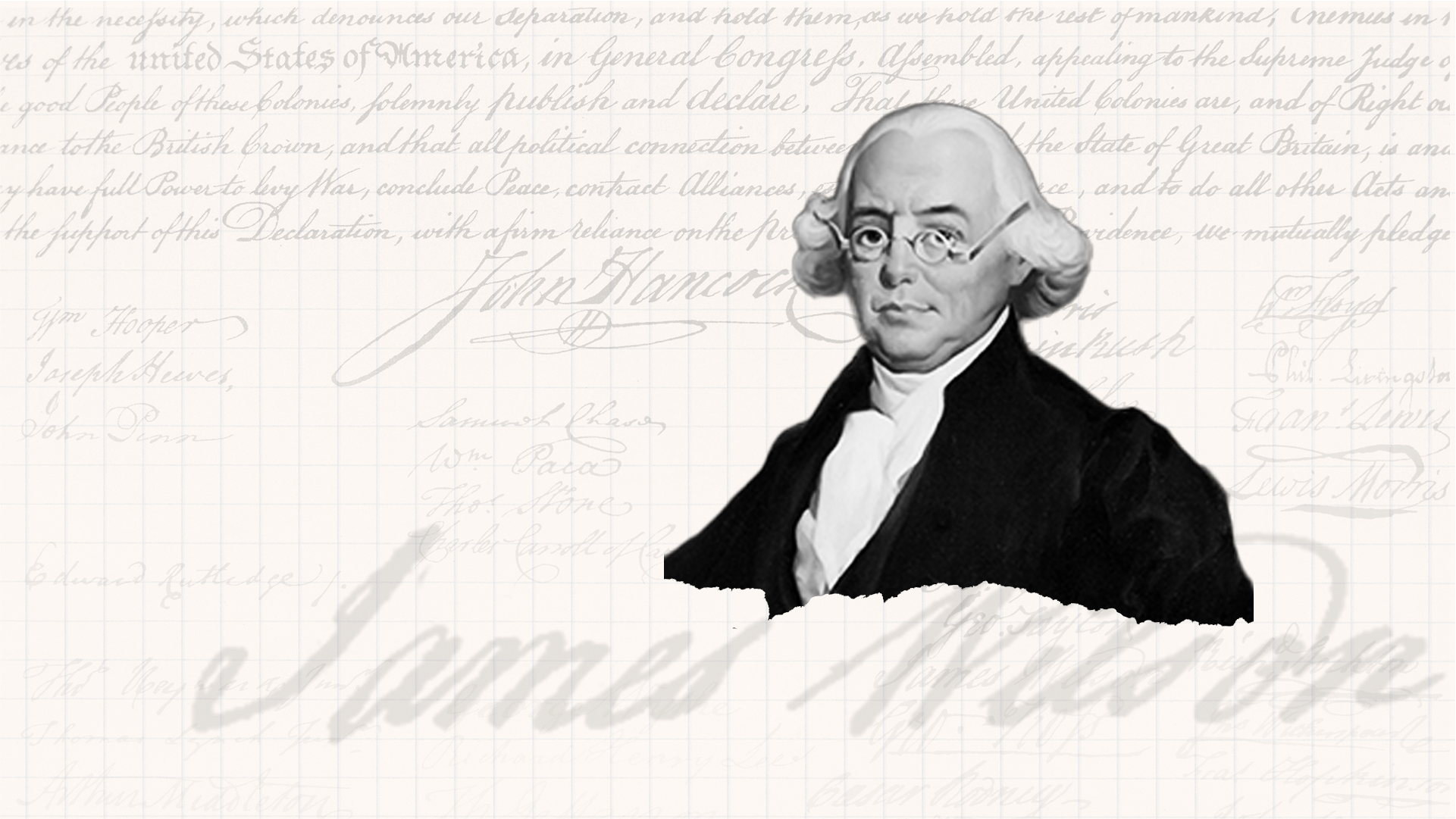
James Wilson
“Forgotten Founder”
Wilson’s Fountain was inspired by the writings of James Wilson, one of only six signers of both the Declaration of Independence and the United States Constitution. Although lost in history, his prescient ideas on popular sovereignty are back in the spotlight as today’s electoral process veers further away from the framers’ original intent.
Who was James Wilson?
A Scottish lawyer by trade, Wilson arrived in Philadelphia in 1765 and quickly became a preeminent colonial thinker. He was a Pennsylvania delegate to two Continental Congresses and a leading voice in favor of American independence.
Best known for his role at the 1787 Constitutional Convention heading the Committee of Detail, drafting the Constitution’s Preamble, and framing the three branches of government. (1)
Promoted ideas that strongly influenced Thomas Jefferson’s writing of the Declaration of Independence. Credited for authoring “We the People.”
Appointed one of the first four Justices of the U.S. Supreme Court by President George Washington in 1789.
The architect of Pennsylvania’s Constitution of 1790 and original author who added “and equal” to the free election clause. (2)
The first law professor at the College of Philadelphia, now the University of Pennsylvania Law School.
James Wilson’s State House Yard speech was the first public defense of the United States Constitution after the convention of 1787 and it was more widely read during his era than the entire works of The Federalist Papers. (3)
Democracy as a fountain
Among many notable writings by James Wilson that influenced America’s early foundational concepts was his description of democracy as a “fountain” and the first duty of the state to guarantee “free and equal elections” to keep the system pristine.
Wilson strongly believed it was not enough for elections just to be free, as they had been since the 1689 English Bill of Rights. But to deliver the “legitimate energy and weight of true representation”, they must be equal. Otherwise the unfairness pollutes the system. Sound familiar?
The constitution of the United States and that of Pennsylvania rest solely…on the great democratical principle of a representation of the people…This great principle necessarily draws along with it the consideration of another principle equally great—the principle of free and equal elections. To maintain, in purity and in vigour, this important principle, whose energy should pervade the most distant parts of the government, is the first duty, and ought to be the first care, of every free state. This is the original fountain, from which all the streams of administration flow. If this fountain is poisoned, the deleterious influence will extend to the remotest corners of the state: if this fountain continues pure and salubrious, the benign operation of its waters will diffuse universal health and soundness.”
– James Wilson, 1790
The Impact of James Wilson
(1) James Wilson and the Drafting of the Constitution by William Ewald, Penn Law: Legal Scholarship Repository, University of Pennsylvania Law School, 6-2008
(2) “FREE AND EQUAL”: JAMES WILSON’S ELECTIONS CLAUSE AND ITS IMPLICATIONS FOR FIGHTING PARTISAN GERRYMANDER IN STATE COURTS by Brett Graham, Albany Law Review, Vol 85, Issue 4, January 12, 2023
(3) James Wilson in the State House Yard: Ratifying the Structures of Popular Sovereignty (2016) by Ian C. Bertram, UNLV William S. Boyd School of Law, Scholarly Works. 1195.
About This Website


